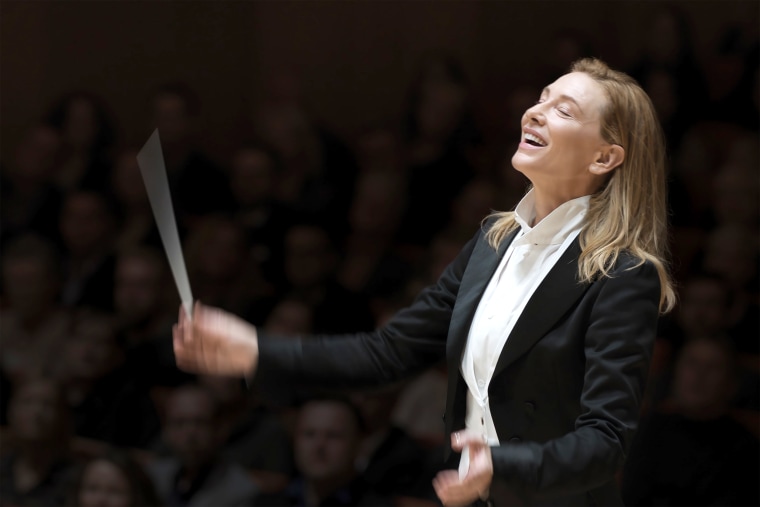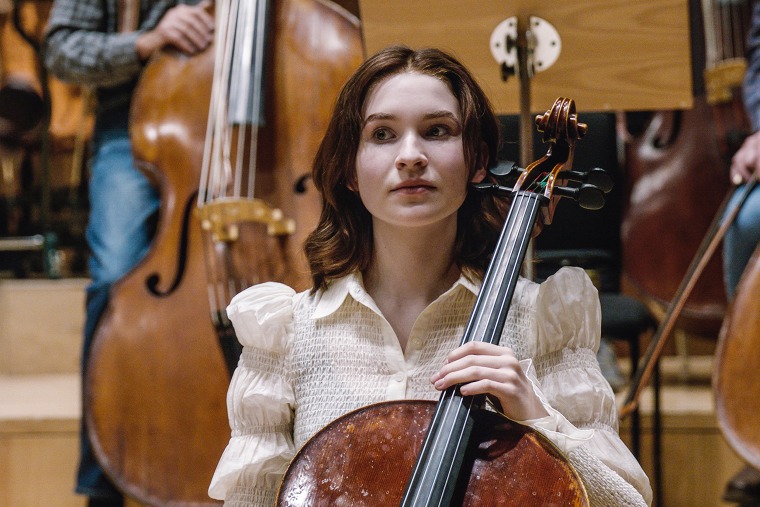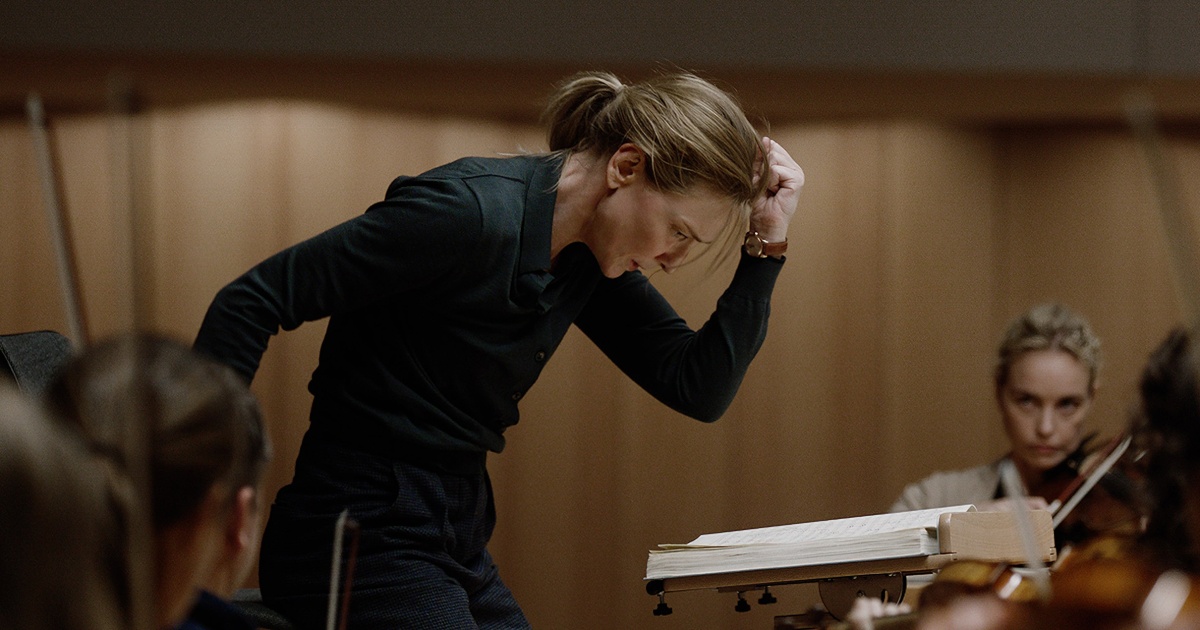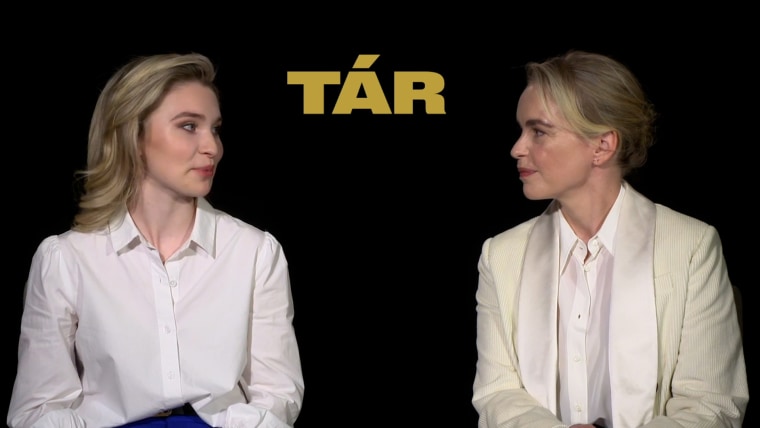Since Todd Field’s latest masterpiece «TÁR» had its world premiere at the Venice Film Festival in early September, the filmmaker and his stars have shared a common message during interviews: It’s cinema’s job to raise difficult questions, but it is the responsibility of the audience to answer. answer them. The questions asked in “TÁR,” scattered throughout its nearly three-hour run, focus on power dynamics, cancel culture, and complicity.
Field’s main character, Lydia Tár (Cate Blanchett in a tour de force), is a fictional world-renowned conductor with a penchant for power travel and younger women. She is also the first woman to take the stage as Principal Conductor of the Berlin Philharmonic and, thanks to this hard-earned success, she has managed to avoid any serious repercussions for her morally questionable habits, at least when the film opens. . As she soon discovers the exquisitely dressed and elegantly coiffed headmaster, all good things must come to an end, and always at the most inopportune times.
With his wife and the orchestra’s first violin, Sharon (Nina Hoss), by his side, Lydia prepares for a landmark performance of Mahler’s Fifth Symphony and the release of his memoir, «Tár on Tár,» when things begin to take shape. A Recession begins with some jarring encounters—giving a smug performance in a Q&A with New Yorker writer Adam Gopnik, openly flirting with young accolades, humiliating a student during a Juilliard master class—but reaches a crescendo when he deals with a former protégé, Krista. Taylor (Sylvia Flote), becomes quite a scandal.
As things start to take a turn for the worse, Lydia does herself a disservice. She’s not interested in exploring her position on identity politics, or anything else. She takes a keen interest in the orchestra’s attractive new cellist, Olga (newcomer Sophie Kauer), which puts her at odds with the other musicians during a crucial point in rehearsals. And she goes so far as to ask her assistant, Francesca (Noémie Merlant), whom the audience understands to be another old flame, to destroy the evidence of her relationship with Krista.
As Lydia overplays her hand, and her personal life and professional success progressively implode, the film does an impressive job of withholding judgment and instead poses a series of questions to the viewer, beginning with: When did the use of the power becomes abuse of power?
Viewing the film, which is Field’s first since «Little Children,» released 16 years ago, viewers must consider how they reflect on themselves in their responses to these questions, including to what extent they consider someone’s actions irredeemable. (or cancelable). valuable)? And, perhaps most important, if they judge Lydia’s actions differently because she is a woman, a gay woman, or a powerful woman.
«Some of the questions that the movie is trying to ask have been questions that I’ve been asking myself for a number of years and trying to find the language for… I felt like I was failing miserably,» Field said in an interview with Reuters. “And I felt like I was having a really hard time finding that language from other people.”

Blanchett said USA Today that she was drawn to how the film «doesn’t allow the audience to easily judge the characters». She also noted that it’s been the hardest film for her to «break it down to a digestible sound bite.»
“It is an examination of the corrupting nature of power in all its forms, but also of many other things,” he said. “It’s rare to see a movie that has really important questions. And he respects the audience enough to ask them.»
Asked by NBC News what she hopes viewers take away from «TÁR,» Hoss, an accomplished German actress and author muse, said she hopes it «starts a conversation.»
“That was my personal experience watching the movie, that I wanted to talk about it, because what I find so beautiful is also that there is no actual trial,” he said. “The director or the actors in it don’t play it for you. You just experience this journey of Lydia Tar and her multifaceted personality and throughout this journey you feel what’s around us right now, the discussions that we’re all in, and you try to put yourself in that perspective, and I think that’s which makes you want to talk about it, because you come up with a lot of great questions.»
Kauer, a professional cellist making her first on-screen appearance, told NBC News that Field «asks a lot of questions that people are afraid to ask.» And while “TÁR” is set in the world of classical music, “it could be set in any industry,” she added.
Sexuality ‘is not a problem’
Notably, while the film is essentially a character study of a complicated woman whose choices (to whatever degree the audience believes she is guilty) lead her to fall apart, the stars have also taken the line that the gender and sexuality of the protagonist are not as important to the story as one might think.
«Weirdly, I didn’t think about the gender of the character, or her sexuality at all, at all,» Blanchett said during an interview. Press conference after the premiere of the film in Venice. “I think I love that about the movie. It simply is. It’s a very human portrait, and I think maybe we’ve matured enough as a species to be able to watch a movie like this and not make it the main subject.»
Blanchett added, in a widely cited moment, that she is «not interested in agitprop», that is, the publicity of politicized ideas through art, and that while there are «a lot of hot topics» that come up in the film, «it’s not about any of those things» . They are plot devices; they are texture.”

When asked by NBC News how the film would be different, if anything, if the lead character were a straight male driver, Hoss and Kauer had similar responses.
“The fact that this is not a heterosexual relationship is not even a question,” Kauer said, echoed by Hoss.
“It is just what it is. They’re a couple. They’re together and they have a child,” Hoss said of the characters played by her and Blanchett. «By saying it that way, I hope it becomes very normal.»
While the fact that Lydia is a gay woman might not be he thing is to thing, and very important in how the movie works to challenge its viewers. If Lydia had been a male driver, for example, perhaps it would be much easier or more natural to draw conclusions about his actions and her motivations, especially in the post-MeToo world. But Field isn’t interested in easy answers.
Throughout the film, Field subtly informs the audience about Lydia’s past aspirations and present accomplishments, which include being a Harvard-educated EGOT (Emmy, Grammy, Oscar and Tony winner), doing everything everything possible to create a complex and difficult to judge character. He then places her in a world populated by women, all vying for a share of the master and her power.


